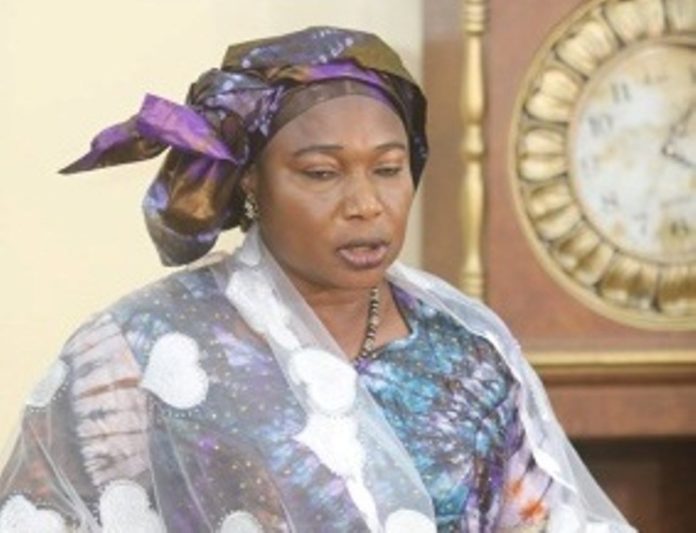By: Kebba AF Touray
The Minister of Agriculture, Amie Fabureh, on Wednesday 16th June 2021, provided an update to the National Assembly Members (NAMs) on the US$80 Million ROOT Project and other relevant issues under the purview of her ministry.
Minister Fabureh provided the said updates on the ROOT Project in response to the question raised by the Member for Basse, Muhammed Maggasy. Magassy quizzed Minister Fabureh to inform the Assembly the level of implementation of the US$80 million ROOTS project and the communities that are benefiting from it in the Upper River Region (URR).
Minister Fabureh responded that recruitment of the project team is completed and that both national and regio nal launching has been successfully done. She also said regional technical committees have been set up in all the regions of the country and they have conducted their maiden meetings. She added that the national steering committee has also been set up and held its maiden meeting.
“The ROOTS project is targeting all the districts in URR, such as Jimara, Tumana, Basse, Kantora, Wuli East and West and Sandu. All the communities are targeted, but may I inform the honorable member that support is based on demand driven approach,” he said.
Minister Fabureh emphasized that all the communities in URR will be benefiting from the project. But she stressed the need for the communities to demand for the support of the project, saying if a community needs an intervention, it should write its request and send it to the regional director so that the community can be supported.
Member for Lower Fulladou West, Alagie Darboe, also asked the Minister to update the Assembly on the possible solution to the high cost of ploughing a plot in the Jahally Pacharr Project, which he said is costing between D1000 to D2500 for a plot.
“I would like to inform the members that the price variance is because there are two kinds of field operation. One is ploughing using the disk harrow and two entails field leveling using the rotovator,” minister Fabureh explained.
The minister further said different variables are taken into consideration when calculating a cost of tillage operation in terms of ploughing, harrowing and rotovator tillage. She said some of the variables include level of fuel consumption, size of the field tilled, hourly wages of the operator, types of operation, field condition that has an influence on the duration of operation among others.
“To plough 0.5 hectares of lowland in Jahally Pachar rice growing perimeter in water logging conditions, a tractor consumes 10 liters of diesel and that the cost of a liter of diesel, fluctuates between D44.14 and D50.64 from January to April,” she said.
This alone, she said is approximately 50 percent of the charges for the operation- that is the hourly operation wages of the operator and the hourly depreciation of services parts, such as filter, lubricants, engine oil and the distance to the field. She said when all the aforementioned variables are put together and cost, it leaves a very little or no profit for the ministry and its private partner.
Minister Fabuireh further said in the case of using a rotovator tillage, a tractor consumes 20 liters of diesel per 0.5 hectare. As such, she said, when all the variables are computed and subtracted from the cost charge from the operation, only a marginal profit remains.
“From the above assertion, the cost stipulated by the ministry is in fact to help the farmers have access to tillage services at the rate that provides minimal or sometimes no profit for the ministry and its partner,” she said.
Member for Central Baddibu, Sulayman Saho, asked the minister to inform the Assembly if there are plans to provide drinking points for cattle in Baddibu Central, especially in the Fula communities that are predominantly herdsmen.
Minister Fabureh responded in the affirmative. She said the water drinking facility will be established at Dobo village in Central Baddibu, through the Adapting Agriculture to Climate Change Project.





















